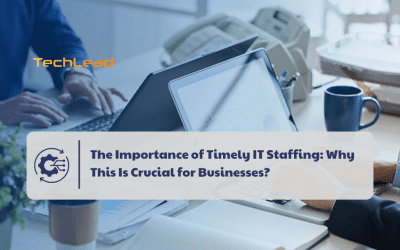In today’s competitive landscape, small businesses (SMBs) face numerous challenges that can impede their growth and operational efficiency. Limited budgets, lack of specialized expertise, and difficulty in managing technological advancements are just a few of the hurdles they encounter. However, IT outsourcing has emerged as a strategic solution to help SMBs overcome these challenges and thrive in the digital age.
IT Outsourcing benefits for the Small Businesses (Collected)
Challenges Faced by Small Businesses
Small businesses (SMBs) play a crucial role in the global economy, yet they encounter numerous challenges that can impact their growth and sustainability. Understanding these challenges is essential for developing effective strategies to overcome them and thrive in competitive markets.
1. Limited Financial Resources
One of the primary challenges faced by small businesses is limited financial resources. Unlike large enterprises with substantial capital reserves, SMBs often operate on tight budgets. This financial constraint can restrict their ability to invest in critical areas such as technology, marketing, and talent acquisition. As a result, SMBs may struggle to fund necessary upgrades, expand operations, or compete effectively with larger competitors who have greater financial capabilities.
Limited Financial Resources (Collected)
2. Lack of Access to Capital
Access to capital is another significant challenge for small businesses, particularly when seeking funding for growth initiatives or managing cash flow during economic downturns. Traditional lenders may perceive SMBs as higher-risk borrowers, making it difficult to secure loans or lines of credit on favorable terms. Moreover, limited access to capital can hinder SMBs’ ability to invest in innovation, product development, or strategic expansion, limiting their long-term growth potential.
3. Limited Marketing Resources
Effective marketing is essential for attracting customers, building brand awareness, and driving sales. However, many SMBs struggle with limited marketing resources, including budget constraints, lack of expertise, or inadequate digital marketing capabilities. Without a robust marketing strategy and execution, SMBs may find it challenging to reach their target audience, differentiate themselves from competitors, or capitalize on market opportunities effectively.
Limited Marketing Resources (Collected)
4. Difficulty in Hiring and Retaining Talent
Finding and retaining skilled employees is a persistent challenge for small businesses. Unlike larger corporations that can offer competitive salaries, benefits, and career advancement opportunities, SMBs may struggle to attract top talent. Additionally, limited resources may prevent SMBs from investing in employee training and development, further exacerbating skill gaps within the organization. As a result, SMBs may face challenges in scaling operations, innovating, or delivering exceptional customer service due to workforce limitations.
Difficulty in Hiring and Retaining Talent (Collected)
5. Regulatory Compliance and Administrative Burdens
Navigating regulatory requirements and compliance standards can be daunting for small businesses, particularly in highly regulated industries such as finance, healthcare, or manufacturing. SMBs must allocate time, resources, and expertise to ensure compliance with laws, regulations, and industry standards, which can divert attention from core business activities. Moreover, administrative burdens such as tax filings, licensing, and legal obligations can consume valuable resources and limit SMBs’ capacity for growth and innovation.
6. Technological Challenges and Digital Transformation
In today’s digital age, technology plays a pivotal role in driving business efficiency, innovation, and competitiveness. However, SMBs often face challenges related to outdated IT infrastructure, limited IT expertise, or insufficient resources for implementing digital transformation initiatives. Without adequate technology investments or strategic IT planning, SMBs may struggle to adopt emerging technologies, automate processes, or capitalize on opportunities in the digital marketplace, hindering their ability to scale and remain competitive.
7. Market Competition and Differentiation
Small businesses operate in increasingly competitive markets where differentiation is essential for success. Competing against larger corporations with established brands, extensive resources, and economies of scale can pose a significant challenge for SMBs. Developing a unique value proposition, building customer loyalty, and effectively positioning products or services in the market requires strategic planning, creativity, and targeted marketing efforts. SMBs must continually innovate, adapt to changing market dynamics, and differentiate themselves to attract and retain customers amid intense competition.
Understanding IT Outsourcing Development
IT outsourcing involves contracting third-party service providers to manage specific IT functions or systems. This strategic partnership allows SMBs to access specialized expertise, advanced technologies, and scalable solutions without the need for extensive internal investment. Common IT outsourcing services include software development, network management, cybersecurity, and helpdesk support.
IT Outsourcing Development (Collected)
Benefits of IT Outsourcing for Small Businesses
In today’s digital era, IT outsourcing has emerged as a strategic solution for small businesses (SMBs) looking to enhance operational efficiency, reduce costs, and leverage specialized expertise. By partnering with external service providers, SMBs can access advanced technologies, streamline processes, and focus on core business functions. Here are the key benefits of IT outsourcing for small businesses:
1. Cost Efficiency
One of the primary advantages of IT outsourcing for SMBs is cost efficiency. Outsourcing IT services allows businesses to convert fixed IT costs into variable costs, making it easier to manage and predict expenses. Instead of investing in expensive IT infrastructure and resources upfront, SMBs can pay for services on an as-needed basis. This cost-effective approach helps SMBs reduce operational expenses, allocate resources more strategically, and reinvest savings into core business activities such as product development or marketing.
Cost Efficiency (Collected)
2. Access to Specialized Expertise
IT outsourcing provides SMBs with access to a diverse talent pool of IT professionals and specialized expertise that may not be available internally. External service providers often have extensive experience and certifications in various technologies, ensuring high-quality service delivery and best practices. Whether it’s software development, cybersecurity, cloud computing, or data analytics, SMBs can leverage the skills of experienced professionals without the overhead costs associated with hiring full-time employees. This access to specialized expertise enables SMBs to implement advanced solutions, innovate more effectively, and remain competitive in their industry.
3. Focus on Core Business Functions
By outsourcing routine IT tasks and support functions, SMBs can redirect internal resources and personnel to focus on core business functions and strategic initiatives. Instead of allocating time and effort to managing IT infrastructure, troubleshooting technical issues, or maintaining software applications, SMBs can prioritize activities that drive growth and profitability. This enhanced focus on core competencies allows SMBs to improve productivity, accelerate time-to-market for new products or services, and enhance overall business agility.
Focus on Core Business Functions (Collected)
4. Scalability and Flexibility
IT outsourcing offers SMBs scalability and flexibility to adapt to changing business needs and market dynamics. External service providers can quickly scale IT resources, infrastructure, and support services in response to fluctuations in demand, seasonal peaks, or business expansion initiatives. Whether scaling up operations during periods of growth or scaling down to optimize costs during economic downturns, SMBs benefit from the agility and scalability provided by outsourcing partners. This flexibility allows SMBs to remain agile, responsive, and competitive in a dynamic business environment.
5. Enhanced Security and Compliance
Ensuring robust cybersecurity and compliance with regulatory requirements is essential for SMBs to protect sensitive data, mitigate risks, and maintain customer trust. IT outsourcing providers specialize in implementing stringent security measures, monitoring threats, and implementing industry best practices to safeguard business information and infrastructure. By leveraging the expertise of outsourcing partners, SMBs can enhance their cybersecurity posture, achieve regulatory compliance, and minimize the likelihood of data breaches or security incidents. This proactive approach to security management helps SMBs mitigate potential risks and protect their reputation in the marketplace.
6. Improved Operational Efficiency
IT outsourcing enables SMBs to streamline operations, improve workflow efficiency, and optimize business processes through automation and technology integration. Whether implementing enterprise resource planning (ERP) systems, customer relationship management (CRM) software, or cloud-based solutions, outsourcing partners help SMBs adopt efficient workflows and standardized processes. By eliminating manual tasks, reducing operational bottlenecks, and enhancing collaboration across departments, SMBs can achieve greater operational efficiency, reduce time-to-market, and deliver superior customer experiences.
7. Access to Advanced Technologies
Staying competitive in today’s digital economy requires SMBs to adopt and integrate advanced technologies that drive innovation and business growth. IT outsourcing allows SMBs to access cutting-edge technologies, tools, and platforms that may be prohibitively expensive or complex to implement independently. Whether adopting artificial intelligence (AI), Internet of Things (IoT), or blockchain solutions, outsourcing partners provide SMBs with the infrastructure and expertise needed to capitalize on emerging trends and opportunities. This access to advanced technologies empowers SMBs to innovate, differentiate their offerings, and maintain a competitive edge in their industry.
Access to Advanced Technologies (Collected)
Considerations When Choosing IT Outsourcing for Small Businesses
IT outsourcing can significantly benefit small businesses (SMBs) by providing access to specialized expertise, reducing costs, and enhancing operational efficiency. However, selecting the right outsourcing partner requires careful consideration of several key factors to ensure compatibility, reliability, and effective service delivery. Here are important considerations for SMBs when choosing IT outsourcing:
1. Reputation and Experience
The reputation and industry experience of the IT outsourcing provider are crucial considerations. SMBs should research potential partners thoroughly, review client testimonials, and assess the provider’s track record in delivering quality services. A reputable outsourcing partner with a proven history of successful projects and satisfied clients is more likely to provide reliable and effective IT solutions.
2. Technical Expertise and Skills
Assessing the technical expertise and skills of the outsourcing provider is essential to ensure they can meet the specific IT needs of your business. Evaluate the qualifications, certifications, and experience of the provider’s technical team in relevant technologies such as software development, cybersecurity, cloud computing, and IT infrastructure management. A competent outsourcing partner should have the necessary skills to implement and support advanced IT solutions tailored to your business requirements.
3. Service Level Agreements (SLAs)
Clear and well-defined Service Level Agreements (SLAs) are critical in establishing expectations for service quality, performance metrics, and response times. SMBs should negotiate SLAs that align with their business objectives and operational needs. Key SLA considerations include uptime guarantees for IT systems, resolution times for technical issues, communication protocols, and escalation procedures in case of service disruptions. Well-drafted SLAs ensure accountability and help mitigate risks associated with outsourcing IT services.
4. Security and Data Protection
Security measures and data protection practices should be a top priority when selecting an IT outsourcing partner. SMBs must ensure that the provider adheres to stringent cybersecurity standards, regulatory requirements (such as GDPR or HIPAA), and industry best practices. Inquire about the outsourcing provider’s approach to data security, encryption methods, access controls, vulnerability management, and incident response protocols. A robust security framework helps safeguard sensitive business information, mitigate cybersecurity risks, and maintain compliance with legal and regulatory obligations.
Security and Data Protection (Collected)
5. Scalability and Flexibility
Consider the outsourcing provider’s ability to scale IT services and resources according to your business growth and evolving needs. SMBs may require scalable solutions that can accommodate fluctuations in demand, seasonal variations, or expansion into new markets. Evaluate the provider’s capacity to ramp up or down IT support, infrastructure capabilities, and service delivery to ensure scalability without compromising performance or operational continuity. A flexible outsourcing partner enables SMBs to adapt quickly to changing business conditions and seize growth opportunities.
6. Communication and Collaboration
Effective communication and collaboration are essential for a successful outsourcing partnership. SMBs should assess the outsourcing provider’s communication channels, responsiveness to inquiries, and availability of technical support. Clear lines of communication facilitate proactive problem-solving, project updates, and alignment on strategic objectives. Establish regular meetings, reporting mechanisms, and feedback loops to maintain transparency, address issues promptly, and foster a collaborative working relationship with the outsourcing team.
Communication and Collaboration (Collected)
7. Cost Structure and Financial Stability
Evaluate the cost structure of IT outsourcing services to ensure they align with your budgetary constraints and financial goals. Compare pricing models, such as fixed-price contracts, time and materials (T&M), or pay-as-you-go arrangements, to determine the most cost-effective option for your business. Additionally, assess the financial stability and viability of the outsourcing provider to mitigate risks associated with potential service disruptions or business continuity issues. A financially stable outsourcing partner with transparent pricing practices helps SMBs manage IT expenditures effectively and avoid unexpected costs.
8. Cultural Fit and Organizational Alignment
Consider the cultural fit and organizational alignment between your business and the outsourcing provider. Compatibility in values, work ethic, and business practices fosters a harmonious working relationship and enhances collaboration. Evaluate the outsourcing provider’s understanding of your industry, business goals, and strategic priorities to ensure they can contribute effectively to your long-term success. A culturally aligned outsourcing partner is more likely to align with your business objectives, share your vision for growth, and deliver value-added IT solutions that support your competitive advantage.
Conclusion
In conclusion, IT outsourcing presents small businesses with a strategic opportunity to overcome operational challenges, enhance competitiveness, and achieve sustainable growth. By leveraging external expertise and resources, SMBs can streamline operations, reduce costs, and focus on core business objectives. However, careful consideration of outsourcing partners and proactive management are essential to maximizing the benefits of IT outsourcing while mitigating potential risks. Embracing IT outsourcing as a strategic initiative can empower small businesses to thrive in a dynamic and technology-driven marketplace.
If you are having difficulty choosing a reputable information technology outsourcing support unit, please contact TechLead, we are always ready to support you 24/7.
TechLead – Leading technology solution for you!
Hotline: 0372278262
Website: https://www.techlead.vn
Linkedin: https://www.linkedin.com/company/techlead-vn/
Email: [email protected]
Address: 4th Floor, No. 11, Nguyen Xien, Thanh Xuan, Hanoi





